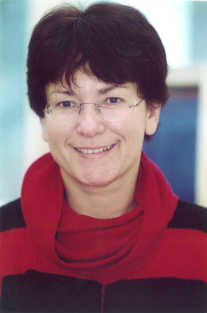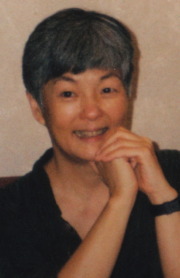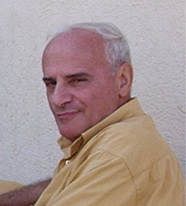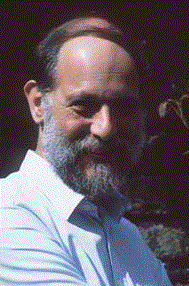|
|
Important Dates
Paper submission: 30 April 2008
Paper notification: 31 May 2008
Camera-ready: 30 June 2008
Conference: 30 - 31 July 2008 (NEW DATE)
|
|
|
|
|
|
Related Events
|
|
|
|
|
|
Past Proceedings
|
|
|
|
|
Sponsors
|
|
Invited Speakers
| Prof. Eva Jablonka Prof. Eva Jablonka is a geneticist known especially for her work on epigenetic inheritance. Her research with Marion Lamb is in the vanguard of what has been described as an ongoing revolution within evolutionary biology. In their current book, they describe how the growing body of evidence for the evolutionary role of epigenetic processes is putting increasing pressure on the dominant neo-Darwinian paradigm. Jablonka is a professor at the Cohn Institute for the History of Philosophy of Science and Ideas at Tel Aviv University and was awarded the Landau Prize of Israel in 1981 and the Marcus prize in 1988.
Selected books:
- Epigenetic Inheritance and Evolution: The Lamarckian Dimension (1995). OUP, Oxford [with Marion Lamb]
- Animal Traditions: Behavioural Inheritance in Evolution (2000). CUP, Cambridge. [with Eytan Avital]
- Evolution in Four Dimensions: Genetic, Epigenetic, Behavioral, and Symbolic Variation in the History of Lifei (2005). MIT Press, Cambridge, MA [with Marion Lamb]
|
|
 |
|
|
Prof. Susan Oyama Prof. Susan Oyama Trained at Harvard University’s Social Relations Department, Susan Oyama has written widely on the nature/nurture opposition and on the concepts of development, evolution, and genetic information. She wrote and edited Aggression with others, under the pen name John Klama (Wiley in the US and Longman in the UK, 1988), and in 2000, her essay collection, Evolution's Eye: A Systems View of the Biology-Culture Divide was published, along with an expanded edition of The Ontogeny of Information, considered by many to be the foundational text of the “developmental systems” perspective. With Paul Griffiths and Russell Gray, Oyama also edited Cycles of Contingency, a volume of papers on developmental systems by scholars from many fields.
Oyama is Professor Emerita at the John Jay College of Criminal Justice and The Graduate School and University Center, both of The City University of New York. She has also taught at Sarah Lawrence College and in the Program in Science, Technology and Power of The New School’s Eugene Lang College.
Recent publications include:
- 2007 Sin techo, sin muros, sin piso. In E. Suárez Díaz (Ed.), Variedad infinita: Ciencia y representación un enfoque histórico y filosófico (pp. 91-105). UNAM Publications and Editorial Limusa: Mexico.
- 2006 Speaking of nature. In Y. Haila & C. Dyke (Eds.), How does nature speak? The dynamics of the human ecological condition (pp. 49-65). Durham, NC: Duke University Press.
- Boundaries and (constructive) interaction. In Christoph Rehmann-Sutter & Eva M. Neumann-Held (Eds.), Genes in development. Re-reading the molecular paradigm (pp. 272-289). Durham, NC: Duke University Press.
|
|
 |
|
| Prof. Domenico Parisi Prof. Domenico Parisi has been working in the last 20 years on neural network models that analyze behavior as resulting from the interaction of the organism with the environment and from both evolutionary processes at the population level and learning processes at the individual level. His work includes models of development as partly due to a genetically inherited developmental program and partly to the individual's experience. Much of his research has been concerned with language and with the role of three processes of change in language: the evolutionary emergence of language, the learning of language by the invidual by imitating others, and the changes in socially transmitted language across successive generations. Parisi is with the Institute of Cognitive Sciences and Technologies of the National Research Council in Rome, and he has been director of the Institute from 1986 to 1994.
He has been co-author of a book on Rethinking Innateness. A Connectionist Perspective on Development, with J.L. Elman et al. (MIT Press, 1997) and has edited, with A. Cangelosi, the booK Simulating the Evolution of Language (Springer, 2002). A paper with M. Mirolli titled "How producer bias can favor the evolution of communication. An analysis of evolutionary dynamics", is in press in the journal Adaptive Behavior.
|
|
 |
|
| Prof. Claudio Stern
Claudio Stern is "J Z Young Professor" and Head of the Research Department of Cell and Developmental Biology.
He also chairs the UCL Centre for Stem Cells and Regenerative Medicine (www.ucl.ac.uk/stemcells).
He has been elected Fellow of the Academy of Medical Sciences and of the Latin-American Academy of Sciences and member of EMBO and in 2006 he was awarded the prestigious Waddington Medal from the British Society for Developmental Biology.
Selected books:
- Essential Developmental Biology: A Practical Approach (1993). IRL Press at Oxford University Press, Oxford [with P.W.H. Holland]
- Gastrulation: from cells to embryo (2004). Cold Spring Harbor Press.
|
|
 |
|
